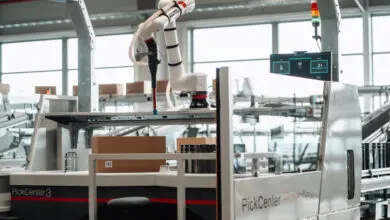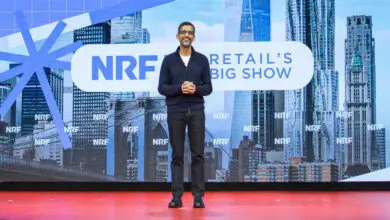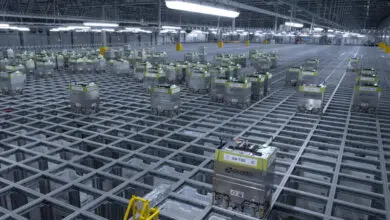Despite unresolved problems, Rewe opens more Pick&Go stores

Rewe Markt, the supermarket division of Rewe Group in Germany, has announced that it will be equipping three more stores with Pick&Go technology in the coming months: in Düsseldorf and Hamburg. Rewe already operates such stores with Trigo technology in Berlin, Cologne and Munich. One of the stores to be added in the spring will be the largest scanless store in the Rewe Group with an area of around 1,200 square metres.
Rewe states correctly that these remain tests. What Rewe is not openly communicating is that many questions about the practicality of scanless technology remain unresolved. With the solutions used, it is still not possible to create digital shopping baskets in real time. Even after leaving the store, it sometimes takes some time before the customer receives their receipt digitally and the amount to be paid is debited from their account.
The reason for this is usually concealed by the providers, but also by the users of the technology – and is nevertheless known to most people in the industry: The combination of vision recognition technology, which works with images from a plethora of cameras installed on the ceiling and weight sensors in each shelf, does not always fully recognise which goods customers have actually taken at the end and not put back. For example, the technology is often unable to cope with group purchases such as those with the whole family on one receipt, which Rewe allows.
People at monitors decide on cases of doubt
If the software cannot clearly recognise what ultimately belongs to the shopping basket to be paid for and what does not, people decide on the cases of doubt based on video sequences that are shown to them on monitors. In an interview with the Retail Optimiser, the CEO of one of the providers of such scanless technology explicitly confirmed that manual intervention is needed from time to time.
However, he does not want to be named in this context. He, whose company has well-known users in the European grocery retail sector, reports: “There are reviews by humans during the operation of each of these stores – regardless of the technology provider. The only question is how often they have to be carried out and do I get the receipt after an hour or after 10 seconds.”
The technology provider Trigo, which is used by Rewe in Germany as well as Aldi Nord in the Netherlands and Tesco in the UK, is now able to create the digital shopping basket at least quickly enough for the customer to pay with a card at a payment terminal in the store instead of just within the app. With its test store in the Dutch city of Utrecht, Aldi Nord and Auchan in Poland are among the first Trigo users to have implemented this. The Retail Optimiser reported.
Receipts are not always correct
What still causes a lot of uncertainty when shopping with scanless technologies is that the receipt created in the app is not always correct. Retail companies that are testing scanless technologies are currently responding to this challenge with the greatest possible courtesy: customer complaints are always accepted and the money is refunded immediately. However, this presupposes honest customers and therefore does not reflect the harsh reality in which retailers have to do business.
Another challenge that retailers are currently working on with different technology providers is the sale of unpackaged fruit and vegetables. Although there are initial attempts to use scanless technologies to sell weighed goods with calibrated scales, these are not yet available in the current Pick&Go stores. Fruit and vegetables can only be charged by the piece: This is a completely unusual and permanently unacceptable procedure for the European grocery retail sector.
Risk of theft in hybrid stores
Further unresolved challenges arise in stores operated as hybrid stores, in which the user companies allow their customers to use scanless technology as well as traditional shopping with payment at manned checkouts or self-checkouts. Rewe Group already operates such stores in Berlin and Cologne. Netto, the discounter of its competitor Edeka Group, operates such a hybrid store with the same technology in Munich.
These stores have two entrance gates. Customers decide whether they want to pay at conventional checkouts or shop using scanless technology by choosing one of the two pass-through gates. Visitors to these stores who decide not to use the scanless method must be honest enough to actually go to a checkout and pay there. These hybrid markets are therefore not yet fit for fraud-proof use. The operator could also track those customers who have decided not to use scanless technology and should collect the products in a shopping trolley or basket in order to pay for them at a conventional checkout. However, these customers have not agreed to the detailed terms of use in the scanless app, which is likely to make the seamless tracking of people by the technology unlawful.
All providers face major challenges
However, it is not only the users of Trigo’s technology, which is used by the Rewe Group in Germany, Aldi Nord in a store in Utrecht in the Netherlands, Tesco in the UK and Auchan in Poland, that are facing these challenges. Stores equipped with competitor technologies from Amazon Just-Walk-Out, AiFi, Pixevia, Cloudpick or Zippin also face similar challenges.
Despite the many unresolved challenges, Rewe Group continues to spread optimism and a pioneering spirit when it comes to scanless stores: “We can see from the tests so far that Pick&Go has been very well received. The usage and recognition rates remain at a very high level. We see this as a good starting point for planning further stores and including them in the Germany-wide test,” Jana Sanktjohanser, Project Manager at Rewe Pick&Go, is quoted as saying in her company’s press release this week.




